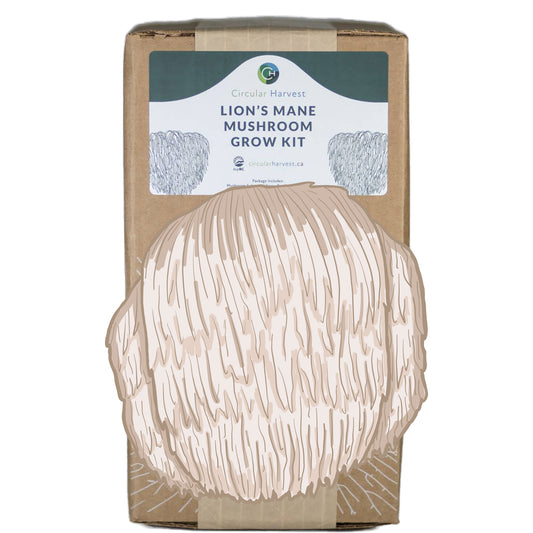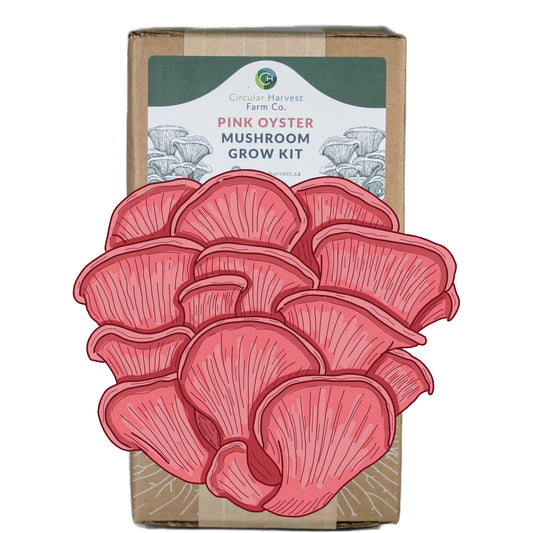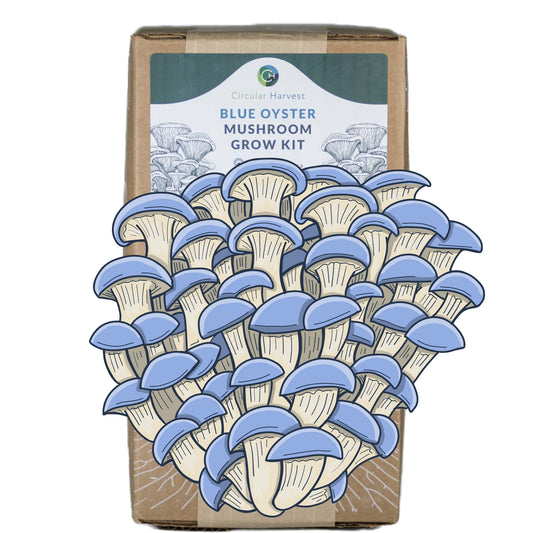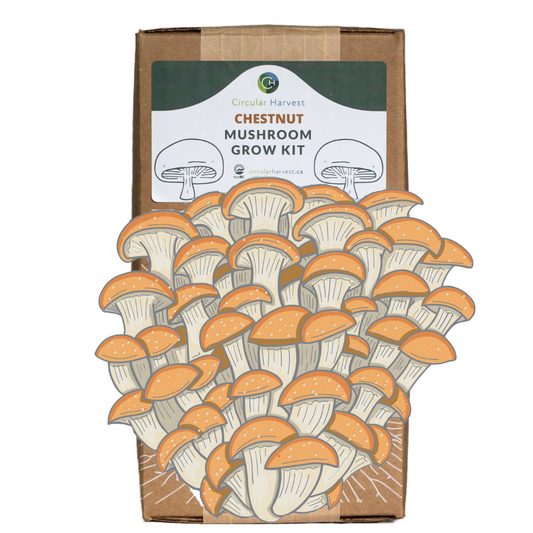Oyster mushrooms, scientifically known as Pleurotus ostreatus, are a fascinating and often overlooked superfood. These mushrooms, with their distinct appearance and delicious flavor, have been a staple in various cuisines for centuries. But beyond their culinary appeal, Oyster mushrooms boast an array of nutritional and medicinal properties that make them a valuable addition to a healthy diet.
In this article, we'll delve into the world of Oyster mushrooms, exploring their nutritional composition, medicinal properties, bioactive compounds, and more. By the end of this journey, you'll come to appreciate these fungi as the underrated superfood they truly are.
The World of Oyster Mushrooms
Oyster mushrooms, named for their oyster-like shape, are versatile fungi that grow on trees, logs, and even straw. They are available in a variety of colors, including white, grey, blue, yellow and pink, and are prized for their mild, earthy flavor. Their popularity spans across culinary traditions worldwide, with chefs and home cooks alike finding creative ways to incorporate them into a range of dishes.
Nutritional Composition of Oyster Mushrooms
One of the most compelling aspects of Oyster mushrooms is their impressive nutritional profile. These mushrooms are low in calories but high in essential nutrients:
Vitamins:
Oyster mushrooms are a rich source of various B vitamins, including riboflavin (B2), niacin (B3), and pantothenic acid (B5). These vitamins play a crucial role in energy metabolism and overall health. Additionally, Oyster mushrooms are one of the few natural sources of vitamin D, making them a valuable addition to diets, especially for individuals with limited sun exposure.
Minerals:
Oyster mushrooms contain essential minerals such as selenium, a potent antioxidant that supports immune function and protects against oxidative stress. Oxidative stress is a condition in the body where there's an imbalance between harmful molecules called "free radicals" and the body's ability to neutralize them with antioxidants. This imbalance can lead to damage to cells, proteins, and DNA, which is associated with various health issues and aging. Think of it as a kind of internal rusting or wear and tear on your body caused by these free radicals.
Macronutrients:
- Protein: Oyster mushrooms contain a notable amount of protein for a mushroom. It varies but typically 2-4g of protein per 100gs of fresh mushroom. Protein is an essential macronutrient required for various bodily functions, including building and repairing tissues, enzymes, hormones, and immune system support. Oyster mushrooms are often considered a valuable source of plant-based protein, making them a suitable option for vegetarians and vegans.
- Dietary Fiber: Oyster mushrooms are a good source of dietary fibre, which is essential for digestive health. Dietary fiber adds bulk to the diet, promotes regular bowel movements, and helps prevent constipation. Additionally, fiber can contribute to a feeling of fullness and may aid in weight management. Typically 2g of Dietary Fiber is found in 100g of fresh mushrooms.
- Carbohydrates: Carbohydrates are one of the primary sources of energy for the body. Oyster mushrooms do contain carbohydrates, but the quantity is relatively low. They provide a slow and steady release of energy, making them a good addition to meals for sustained energy levels without causing rapid spikes in blood sugar. Typically about 4g in 100gs of fresh mushrooms.
- Fat: Oyster mushrooms are naturally low in fat. The fat content in these mushrooms is minimal, which can be beneficial for those looking to reduce their fat intake or follow a low-fat diet. Typically 0.5g of fat is found in 100g of fresh mushroom.
Medicinal Properties
Oyster mushrooms have been traditionally used for their medicinal properties, and modern research supports many of these claims. Here are some of the medicinal benefits associated with Oyster mushrooms:
Anti-diabetic:
Oyster mushrooms contain compounds that may help regulate blood sugar levels, making them potentially beneficial for individuals with diabetes. Here are some of the compounds that scientists have studied to observe this medicinal property.
Polysaccharides: Oyster mushrooms contain polysaccharides, which are complex carbohydrates. These polysaccharides have been studied for their potential to lower blood sugar levels. They may work by improving insulin sensitivity and promoting glucose uptake by cells. Additionally, they may reduce the absorption of glucose from the digestive tract.
Beta-Glucans: Beta-glucans are a type of polysaccharide found in Oyster mushrooms. They have shown potential in modulating blood sugar levels by slowing down the absorption of glucose and promoting its utilization by cells. Beta-glucans may also help regulate insulin secretion from the pancreas.
Antioxidant Activity: Oyster mushrooms are rich in antioxidants, such as phenols and flavonoids. These antioxidants can help reduce oxidative stress, which is linked to insulin resistance and diabetes. By decreasing oxidative stress, Oyster mushrooms may indirectly support better blood sugar control.
Selenium: Oyster mushrooms contain selenium, a trace mineral with antioxidant properties. Selenium may play a role in insulin function and improve the body's response to insulin.
Anti-Inflammatory Effects: Chronic inflammation is associated with insulin resistance and the development of type 2 diabetes. Oyster mushrooms have anti-inflammatory properties that can help reduce inflammation in the body, potentially improving insulin sensitivity.
Glycogen Synthesis: Some research suggests that Oyster mushroom extracts may promote the synthesis of glycogen in the liver and muscles. Glycogen is a form of stored glucose that helps regulate blood sugar levels.
Regulation of Liver Enzymes: Oyster mushrooms may help regulate the activity of liver enzymes involved in glucose metabolism, which can have a positive impact on blood sugar control.
Anti-bacterial:
Studies have shown that Oyster mushroom extracts possess antibacterial properties, which can help combat various pathogens.Oyster mushrooms have demonstrated antibacterial properties, and their effectiveness can be attributed to several compounds and mechanisms. While the specific mechanisms might vary, here's a general explanation of how Oyster mushrooms can exhibit antibacterial activity:
Lectins: Oyster mushrooms contain lectins, which are proteins that can bind to carbohydrates on the surface of bacterial cells. These lectins can disrupt the integrity of the bacterial cell membrane by binding to specific carbohydrate molecules, leading to damage and ultimately bacterial cell death. This can prevent the growth and proliferation of bacteria.
Terpenoids and Phenolic Compounds: Oyster mushrooms also contain terpenoids and phenolic compounds, which possess antimicrobial properties. These compounds can disrupt bacterial cell membranes, interfere with cellular processes, and inhibit the growth of bacteria.
Beta-Glucans: Beta-glucans, another type of compound found in Oyster mushrooms, can stimulate the immune system. While not directly antibacterial, they can enhance the body's natural defense mechanisms against bacterial infections. This includes activating immune cells such as macrophages and neutrophils, which play a key role in identifying and destroying bacteria.
Chelating Properties: Oyster mushrooms have the ability to chelate or bind to metal ions. Some pathogenic bacteria require metal ions, like iron, for their growth and metabolism. By chelating these essential ions, Oyster mushrooms can deprive bacteria of their vital nutrients, hindering their ability to thrive.
Reducing Inflammation: Inflammation is often a response to bacterial infections. Oyster mushrooms, with their anti-inflammatory properties, can help mitigate the inflammatory response associated with bacterial infections. By reducing inflammation, they can indirectly limit the growth and spread of bacteria.
Promoting Immune Health: Oyster mushrooms contain compounds that can support the immune system. A robust immune system is better equipped to defend against bacterial infections, making the body less susceptible to bacterial pathogens.
Anti-cholesterolic:
The consumption of Oyster mushrooms may lead to lower cholesterol levels, contributing to heart health. Here are the compounds that help aid in this;
Beta-Glucans: Oyster mushrooms contain beta-glucans, a type of soluble dietary fiber. Beta-glucans can help lower cholesterol levels by binding to cholesterol molecules in the digestive tract. They form a gel-like substance that traps cholesterol and prevents it from being absorbed into the bloodstream. As a result, less cholesterol is available for circulation and can be excreted from the body through feces.
Ergosterol: Ergosterol is a compound found in Oyster mushrooms, and it is a precursor to vitamin D. Some research suggests that ergosterol may contribute to the anticholesterol effect by inhibiting the absorption of cholesterol from the intestines.
Sterols and Stanols: Oyster mushrooms contain plant sterols and stanols, which are structurally similar to cholesterol. When these sterols and stanols are consumed, they can compete with cholesterol for absorption in the digestive system. This competition can lead to reduced cholesterol absorption, helping to lower blood cholesterol levels.
Low-Calorie and Low-Fat Content: Oyster mushrooms are naturally low in calories and fat, making them a healthy dietary choice. Replacing higher-calorie and higher-fat foods in the diet with Oyster mushrooms can contribute to overall heart health and may help in managing cholesterol levels.
Antioxidant:
Oyster mushrooms are rich in antioxidants, which can help protect cells from damage caused by free radicals as discussed before.
Anti-cancer:
Oyster mushrooms have shown potential in having anticancer properties, and these effects can be attributed to various compounds and mechanisms. Here's an explanation of how Oyster mushrooms may exhibit anticancer activity and the roles of specific compounds:
Polysaccharides: Oyster mushrooms are rich in polysaccharides, particularly beta-glucans. These compounds have immunomodulatory effects and can stimulate the activity of immune cells, such as macrophages, T-cells, and natural killer cells. An active and well-functioning immune system is crucial for identifying and eliminating cancerous cells in the body. The enhanced immune response can contribute to the prevention and control of cancer.
Antioxidants: Oyster mushrooms contain various antioxidants, including phenolic compounds and flavonoids. Antioxidants help combat oxidative stress by neutralizing harmful free radicals. Oxidative stress can damage DNA and other cellular components, potentially leading to the development of cancer. By reducing oxidative stress, Oyster mushrooms can help protect cells from mutations and malignancy.
Anti-Inflammatory Properties: Chronic inflammation is linked to the development and progression of cancer. Oyster mushrooms possess anti-inflammatory properties that can help reduce inflammation in the body. This anti-inflammatory effect may contribute to the prevention and management of certain types of cancer.
Immune System Support: Oyster mushrooms can enhance the overall functioning of the immune system. A robust immune system is better equipped to detect and destroy cancer cells. The immune response is a vital defense against cancer, and Oyster mushrooms may help strengthen this response.
Induction of Apoptosis: Apoptosis is a natural process by which damaged or unwanted cells, including cancer cells, undergo programmed cell death. Some research suggests that Oyster mushroom extracts may induce apoptosis in cancer cells, causing them to self-destruct. This mechanism can help control the growth and spread of cancer.
Inhibition of Angiogenesis: Angiogenesis is the formation of new blood vessels, which is necessary for tumor growth. Oyster mushrooms may contain compounds that can inhibit angiogenesis, thereby limiting the blood supply to tumors and hindering their growth.
Eye Health:
The presence of vitamin D in Oyster mushrooms may support eye health, reducing the risk of age-related macular degeneration.
Culinary Delights with Oyster Mushrooms
Oyster mushrooms are one of the most versatile mushrooms. They can be cooked to a crisp for people who don't like the texture of mushrooms and they have an amazing ability to soak up any flavour they are cooked in, to help alleviate the umami flavour some people distaste. Oysters are one of our favourite mushrooms here at Circular Harvest which is why we utilize them in our Funghi Soup and BBQ Pulled Mushrooms. You can buy these products online and pick up at a location near you.
Additionally we have a ton of recipes that utilize Oyster mushrooms on our Recipe's Page.






